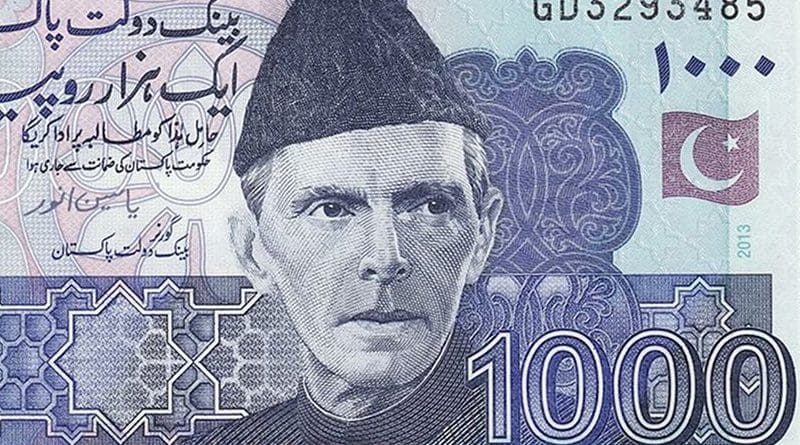Making Pakistan’s Geo-Economic Dreams A Reality – OpEd
By Hamael Kashif
Pakistani Foreign Minister Shah Mehmood Qureshi held a virtual conference with select members of the US Congress on Saturday, where the minister expressed a desire to forge mutually beneficial relations and invited several law-makers to discuss matters further in June. The meeting was Pakistan’s most recent effort to materialize a foreign policy shift, one that has been in the works since 2018. Acutely aware of its geopolitical limitations, the incumbent administration hopes to proceed further with a geo-economic agenda instead. The plan rests upon pillars of peace, development partnerships, and connectivity.
In bringing about this change in foreign policy, the chief asset at Pakistan’s disposal is its new-found image as a potential leader in Asia. Negotiating peace in Afghanistan marked the first essential step toward constructing this image. Adhering to a ceasefire with India and adopting a principled stance on Israeli settlements helped solidify it. The country is undoubtedly becoming a key player in the region and is now one step closer to becoming an Asian tiger, as was imagined several decades ago. Yet, numerous impediments still obstruct its geo-economic end goal.
Of these, the most pressing remains Pakistan’s domestic economy. Remittances rose by 17% in the previous year and exports recently hit a ten-year high. However, the country falls short of sound but dynamic economic strategies that combine demand and supply-side forces. By extension, the state needs to build a more appealing profile abroad to attract investment and trade. Several studies have concluded there is an inverse correlation between volatility and foreign direct investment (FDI). In February 2021, the State Bank reiterated this fact by asserting that FDI had decreased by 27% compared to the same time last year. This was caused in part by the political polarization the country experienced during the peak of the COVID-19 pandemic.
On the international front, several organizations feel the country has been unable to fulfil obligations to its citizens and the global community. Back in 2017, the BRICS alliance claimed there were multiple terrorist organizations working within Pakistan. The country was also placed on the FATF grey list on charges of terror financing and money laundering. To counter this, no fewer than eleven bills were enacted by the state legislature. Law-enforcement officials also arrested several trouble-makers, including Zaki-ur-Rehman Lakhvi, the alleged brains behind Mumbai’s terror attacks. But just as progress was being made, the EU decided to review Pakistan’s GSP+ status on account of its upsetting human rights portfolio and much-debated blasphemy law. The EU is Pakistan’s largest export partner, and this latest development is guaranteed to trigger an increase in the current account deficit.
In terms of geostrategic importance, few states in the world come close to Pakistan’s coveted spot. The country possesses direct access to warm waters of the Arabian Sea and is the shortest route to the Indian Ocean for land-locked countries in Central Asia. Unfortunately, however, connectivity remains a challenge. CPEC has faced several delays due to coronavirus-related complications, a failure to establish special economic zones, and a lack of consensus over tax exemptions for locals. Projects worth $12 billion remain incomplete. The Asian Development Bank also recently concluded that crossing Pakistan’s borders is a costly and tedious exercise and, as a result, not conducive for interconnectivity in the region.
The country wishes to use economic interdependence as a foreign policy tool like its neighbor in the north. But it must cater to a few of its deficiencies first. The most effective solution will be a strategy gravitating towards two key areas. Domestically, the state must ensure fundamental rights of citizens are guaranteed and the writ of the state prohibits any extremist sentiments from expanding their network. The need of the hour is a shift from traditional security to human security. This will have a direct impact on finances as more countries will be willing to establish friendly relations with Pakistan, inevitably attracting investments.
Economically, the state requires a hybrid of demand and supply-side policies with a reduction in interest rates but an increase in supply to ensure the market remains competitive and the quality of exports is up to international standards. Bilateral trade pacts must take center stage as multilateral trade organizations like SAARC have become largely defunct over the years. Lastly, breathing new life in to the Pakistan railways is an essential stepping-stone in connecting the country with Iran and Turkey for both tourism and trade purposes.
Pakistan’s new and improved foreign policy seems like a logical shift. Commerce is rapidly displacing military methods across the world to achieve national objectives. However, foreign policy is a logical extension of domestic and economic policy. In order to achieve success in the former, it is important to first fix the latter.
The views expressed in this article are those of the authors alone and do not necessarily reflect those of Geopoliticalmonitor.com

